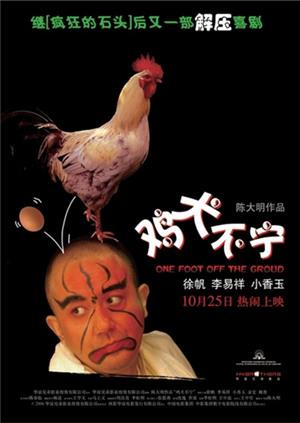皮特·戴维森邀请他的朋友登台共度单口喜剧和音乐之夜,亚洲他调侃谣言、免费乘坐飞机和自己怪异的一年。

皮特·戴维森邀请他的朋友登台共度单口喜剧和音乐之夜,亚洲他调侃谣言、免费乘坐飞机和自己怪异的一年。


回复 :开罗,2013年夏季,埃及革命爆发两年后。随着总统穆尔西被革职,一辆载满因政治分歧和宗教背景而被拘的示威者的警车从暴乱的抗议人群中呼啸而过。他们可否克服分歧来争取一线生机?
回复 :这是一部关于性、食物和隐秘欲望的日本三联画。主人公栗田拎着一个中式栗子盒,经历了关于食物与情欲的三段奇遇:从纳豆、麻婆豆腐到拉面,它们挑动着味蕾,也揭开了看似平静的夫妻生活背后的暗流涌动。
回复 :Three years after the loss of his brother Vittorio, with whom he shared his entire career, Paolo Taviani returns to the works of Luigi Pirandello, which the pair adapted in 1984 (Chaos) and 1998 (You Laugh). In keeping with the Sicilian playwright’s vision, the film is not at all what it appears to be. The title may come from a 1910 novella, but there is no trace of that book’s jealousy-riddled plot. Instead, the focus is on Pirandello himself, or rather, his ashes, which are transported from a hasty burial site in fascist Rome to a permanent resting place in Sicily, on a trek that takes us through post-war Italy and its filmed memories, as seen in newsreels, amateur films and fragments of Neorealism. Having buried the master, Leonora addio then shifts gear from road movie to film adaptation, but here it picks a different Pirandello story, namely the last one, written shortly before his death in 1936. From the farewell of the title to its return to the writer’s last words, it is hard not to read this work, so free and yet so much a part of the Taviani world, as a moving brotherly farewell which, just as in 2012’s Golden Bear winner Caesar Must Die, once again uses cinema to give voice to literature and history.
